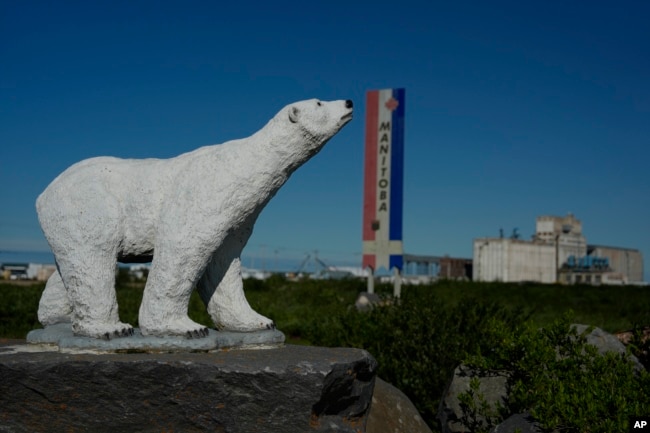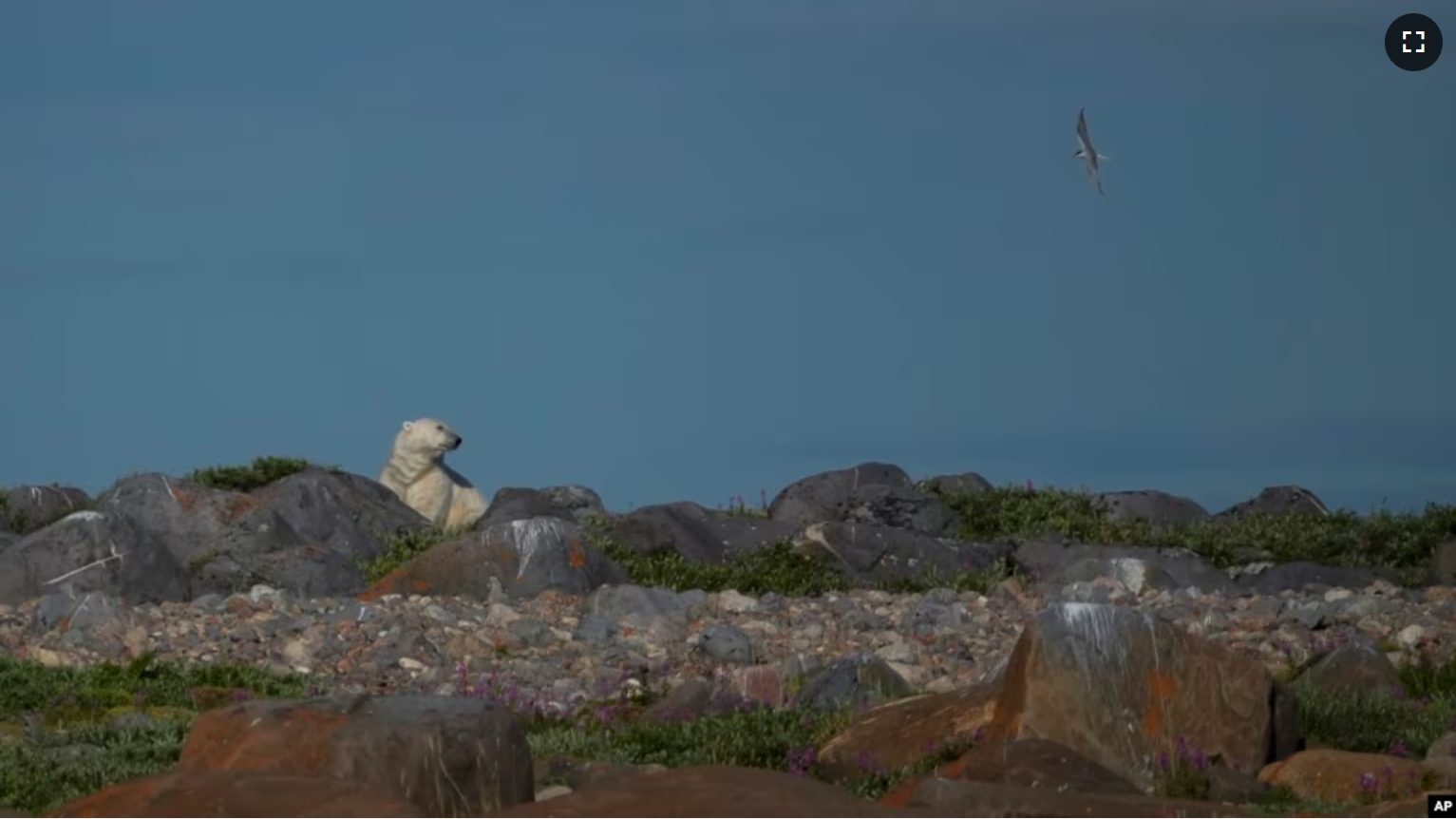Churchill, Manitoba is a small, rural Canadian town that lives with neighboring predators and loves it. That is because the predators — a polar bear population — attract the visitors who saved the town’s economy after a military base there closed. Tourists wanting to see the bears bring millions of dollars into the local economy.
However, the bears are entering the town more often in search of food. Researchers say the sea ice where the bears normally hunt is shrinking.
Geoff York is with Polar Bears International, a nonprofit environmental group based in Manitoba. York said: “You’re seeing more bears because there are more bears on the land for longer periods of time to be seen” and they are willing to take more risks, getting closer to people.
There are about 600 polar bears in this Western Hudson Bay population. Environmentalists say that is about half what it was 40 years ago. Humans in Churchill outnumber the bears although not by very many.
It has been more than 10 years since a polar bear attacked anyone in Churchill. But townspeople look out for each other and tourists with a warning system and guards. There is even a polar bear jail.
Controlling Churchill’s bears
Sergeant Ian Van Nest is a Manitoba province conservation officer. He recently guarded the streets of Churchill in his truck. It was the beginning of polar bear season in Churchill.
The vehicle is equipped with a rifle and a barred back seat to hold anyone he might have to arrest.
Van Nest saw a crowd of people who were watching a bear. He looked around for trouble in the area and then quietly spoke to the group’s leader.
“How are you today?” Van Nest asked. The group leader answered that they were all right and then asked if their gathering place is acceptable to Van Nest.
“You’re good,” the officer answered. “You [have] got a lot of distance there,” he added. So, the tour group continued to watch a polar bear on some nearby rocks.

The importance of visitors
Visitors interested in seeing the polar bears saved Churchill from shrinking out of existence when a military base there closed in the 1970s. The closure led to a drop in Churchill’s population, from a few thousand residents to about 870.
A 2011 government study found that the average polar bear tourist spent about $5,000 per visit. The tourism adds more than $7 million yearly to the economy of the little town. Churchill has a few nice restaurants and more than 25 places where visitors can stay.
“We’re…used to bears so (when you see one) you don’t start to tremble,” Mayor Mike Spence said. “It’s their area too. It’s important how the community coexists with bears and wildlife in general to really get along. We’re all connected.”
Churchill residents show polar bear pride in a way that mixes terror and fun.
“You know we’re the polar bear capital of the world, right? We have the product, it’s just about getting out there to see the bears safely,” said Dave Daley, who owns a gift shop, runs dog sleds and promotes the city. He also is a former president of the Chamber of Commerce, an office that supports business activity.
The former military base had a rocket launch area. It seemed to keep bears away. When it closed, the bears started entering the town more often, longtime residents said. So, Churchill and province officials “put together a polar bear alert program to make sure the community members were looked after, [and] protected,” said Spence who has been Churchill’s mayor since 1995.
The town’s old curfew siren sounds nightly, warning people that it is time to go inside to be safe from bears.
Georgina Berg recalls growing up in the 1970s near Churchill, where many First Nations people lived. “First Nations” is used in Canada to identify native people.

She remembers how differently her father and mother would react to seeing a bear in the past. She said her father would not pay attention to them.
“He said, ‘If you don’t bother them, then they won’t bother you,’” she recalled.
When a bear came near in later years, after her father had died, her mom was frightened.
“Everybody was yelling, and all the kids had to come in and everybody had to go home. And then we stayed silent in the house for a long time until we knew for sure that bear was gone,” Berg recalled.
For Van Nest, the provincial officer, the recent meeting with a group of bear watchers was different. The group was about 100 meters away from the bear. He said the bear was “putting on a bit of a show” for the tourists.
“This is a great situation to be in,” he said. “The tourists are a safe distance away and the bear’s doing his natural thing and not being harassed by anybody.”
I’m Jill Robbins. And I’m Caty Weaver.
Seth Borenstein reported this story for the Associated Press. Caty Weaver adapted it for VOA Learning English.
___________________________________________
Words in This Story
predator –n. an animal that eats other animals to live
tourist –n. a person who visits places for enjoyment
barred –adj. equipped with bars to detain people
resident –n. a person who lives in a town, city, state or country
tremble –v. to shake uncontrollably
pride –n. a feeling of importance or happiness about something you have done
dog sled –n. a vehicle for the snow that is pulled by dogs and usually has runners
promote –v. to bring attention to something and to support its activities
siren –n. a loud device that is used to warn people over a large area
bother –v. to cause a person to feel worried, concerned or annoyed
harass –v. to repeatedly bother someone by creating a situation that causes them problems
